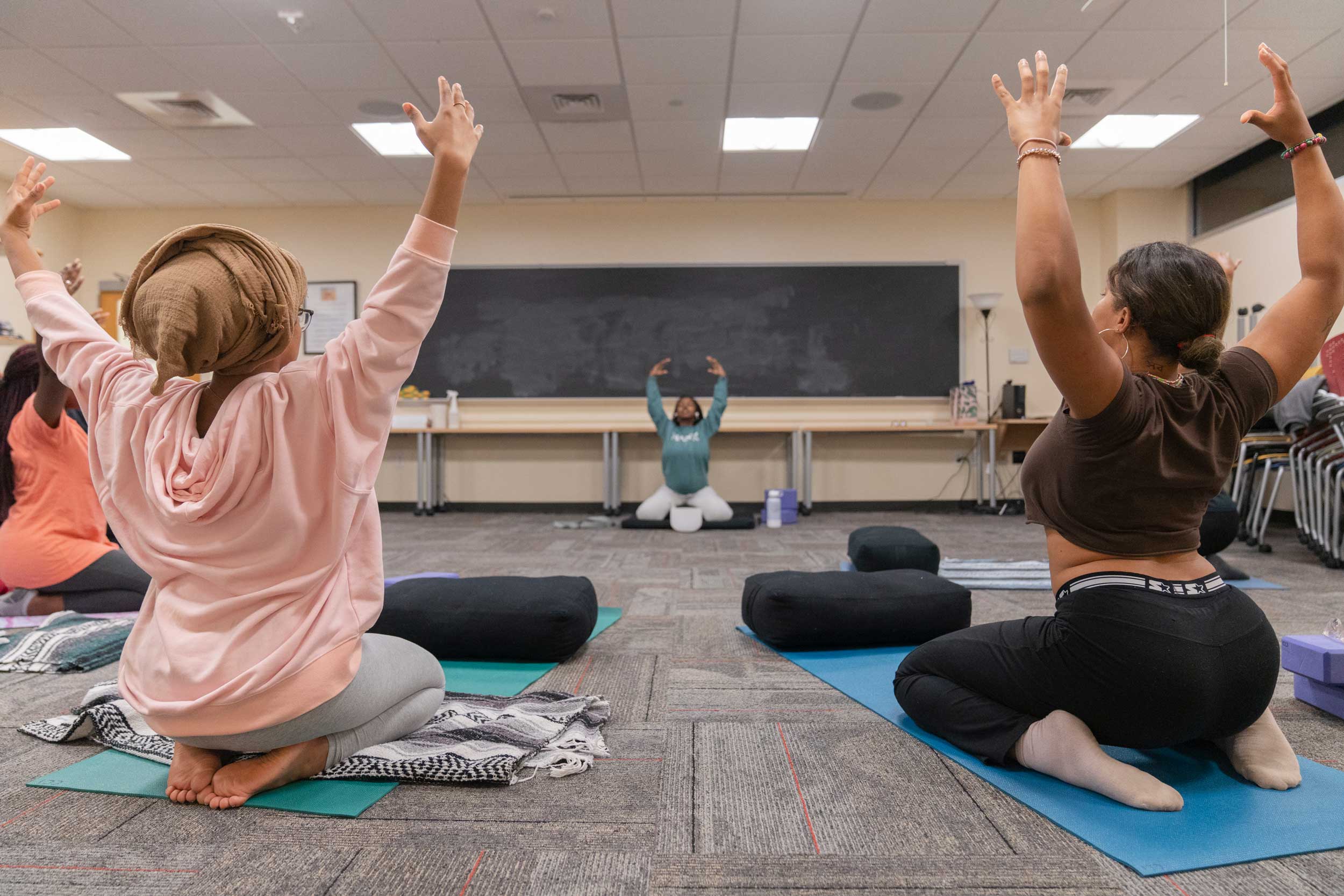The Contemplative Sciences Center defines flourishing as “[realizing] well-being by achieving deep states of health and actualization of potential in all aspects of life, as well as to actively contribute to the well-being and flourishing of other people, other communities, and the natural world.”
“At UVA, I did a lot of research on double consciousness,” Epperson said. “Coupled with my African American studies degree, I liked to learn about how, as a Black woman, people perceive me and how I perceive other people.
“That’s why I like to teach yoga, because I find concepts like these very malleable to everyone’s life and easy to introduce through these practices,” she said.
The Contemplative Sciences Center hosts a range of reflective courses that use methods from various cultural practices, including ashtanga yoga, tai chi and yin yoga. While most programs are open to all students, some programs have specific target audiences in mind, like practices for student-athletes, international students and people of color.
“Santosha for Sisters” is one of those programs. It’s a key component of Epperson’s Flourishing While Black initiative, a series of classes aimed at promoting access to healthy lifestyles and engagement with new wellness techniques in the Black community at UVA.
“Flourishing While Black has three pillars to it,” Epperson said. “The first is creating a sense of belonging in this community of Black contemplative practitioners. No. 2 is cultivating compassion for yourself and other beings. And lastly, the program is meant to engage [members] in a wide variety of practices.”
In her role, Epperson is responsible for creating and teaching yoga programs and assessing their response. While the Contemplative Sciences Center hosts several programs designed for all students, Epperson’s focus is on creating wellness groups for underrepresented groups at the University. To Epperson, creating programming that fits the specific needs of certain people is more impactful than simply using a one-size-fits-all approach.
“There is a very distinct difference between saying people are welcomed in a space versus telling someone a space was designed for them,” Epperson said. “That is why I created Flourishing While Black, to really cater to the Black population at UVA.”
She’s been working toward this goal much of her life.
At 14, Epperson took an interest in mindfulness and mind-body yoga movements. Over the years, she was exposed to various yoga philosophies, including Ahimsa, the principle of refraining from harm. Another philosophy Epperson was introduced to was Santosha.
Santosha, a Sanskrit word that roughly translates to “contentment,” is one of the five guiding principles of yoga meant to encourage inner peace. The concept of Santosha is not to promote absolute happiness in life, but to encourage the acceptance of one’s circumstances for what they are.
During her time as a UVA undergraduate, Epperson taught recreational fitness classes and was the head chair for Sistahs Get Fit, an initiative by the Office of African-American Affairs to promote healthy habits and resources for Black students.
After graduating, Epperson completed a 200-hour Registered Yoga Teacher training program in March 2020, allowing her to finally teach yoga as an instructor.
Epperson said Black students, Indigenous students and other students of color benefit from “spaces where they can truly not feel watched or judged, the option to dress how they like instead of what is ‘acceptable’ or to uphold certain ‘aesthetics,’ to hear music and accents that remind them of home, and to feel safe enough to be vulnerable.












